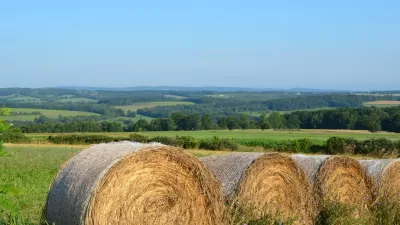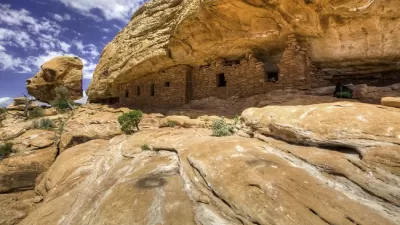A tax break designed to protect land has become just another massive tax loophole. It looks like conservation easements are here to stay.

Peter Elkind reports on the details of an underappreciated mechanism of the U.S. tax structure that relates to land use, i.e., conservation easements.
The idea seems like the perfect marriage of environmentalism and capitalism: Landowners give up their right to develop a piece of property, and in exchange they receive a special tax deduction. Nature is preserved and everybody benefits.
According to Elkind, conservation easements worked in many examples, but at some point conservation easements became motivated more by commercial reward than for any concern about the natural environment. Elkind recounts the story of the former Millstone Golf Course outside of Greenville, South Carolina, closed in 2006 and dormant until 2016.
Later in 2016, however, a pair of promoters appeared. They gathered investors who purchased the same parcel at the market price and, with the help of a private appraiser, declared it to be worth $41 million, nearly eight times its purchase price. Why? Because with that new valuation and a bit of paperwork, the investors were suddenly able to claim a tax deduction of $4 for each $1 they invested.
According to Elkind, those kinds of transactions have transformed conservation easements into the "single most generous charitable deduction in the tax code." If you're wondering whether it survived the Republican tax reform bill signed recently by the president, it did, according to Elkind. Moreover, President Trump has a long history of building tax shelters by using conservation easements.
The article includes a lot more examples and explanations to describe the tax shelter conservation easements have become.
FULL STORY: The Billion-Dollar Loophole

Planetizen Federal Action Tracker
A weekly monitor of how Trump’s orders and actions are impacting planners and planning in America.

Restaurant Patios Were a Pandemic Win — Why Were They so Hard to Keep?
Social distancing requirements and changes in travel patterns prompted cities to pilot new uses for street and sidewalk space. Then it got complicated.

Map: Where Senate Republicans Want to Sell Your Public Lands
For public land advocates, the Senate Republicans’ proposal to sell millions of acres of public land in the West is “the biggest fight of their careers.”

Maui's Vacation Rental Debate Turns Ugly
Verbal attacks, misinformation campaigns and fistfights plague a high-stakes debate to convert thousands of vacation rentals into long-term housing.

San Francisco Suspends Traffic Calming Amidst Record Deaths
Citing “a challenging fiscal landscape,” the city will cease the program on the heels of 42 traffic deaths, including 24 pedestrians.

California Homeless Arrests, Citations Spike After Ruling
An investigation reveals that anti-homeless actions increased up to 500% after Grants Pass v. Johnson — even in cities claiming no policy change.
Urban Design for Planners 1: Software Tools
This six-course series explores essential urban design concepts using open source software and equips planners with the tools they need to participate fully in the urban design process.
Planning for Universal Design
Learn the tools for implementing Universal Design in planning regulations.
Heyer Gruel & Associates PA
JM Goldson LLC
Custer County Colorado
City of Camden Redevelopment Agency
City of Astoria
Transportation Research & Education Center (TREC) at Portland State University
Camden Redevelopment Agency
City of Claremont
Municipality of Princeton (NJ)





























